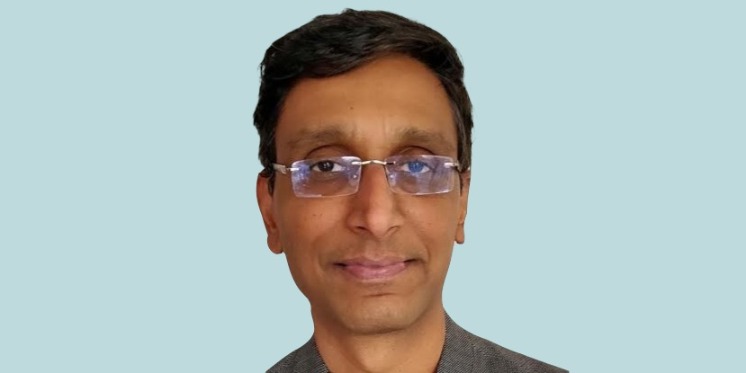John Hoffmire: You’ve had an interesting journey from electrical engineer to being the energy sector lead for Villgro Innovations Foundation, India’s oldest and one of the world’s largest social enterprise incubators. Please tell me about that journey?
Ananth: I started out as an electronics engineer by training. I spent 14 years in the IT/Tech sector at multi-national companies like Siemens, Lucent Technologies and MindTree, and then six years with SELCO Foundation, a social enterprise in the renewable energy sector. In 2015, I was selected as a Fellow of the Chevening Research Science and Innovation Leadership program (CRISP), which enabled me to attend a 3-month specialized course at the Said Business School at the University of Oxford in the UK.
My time with the CRISP program reaffirmed and reinforced my interest and passion for working in the social enterprise space, where I can combine effective business strategy and social impact, while taking on some of the most complex challenges that society faces. Shortly after retuning to India from Oxford, I joined Villgro as lead of their energy sector.
John: Will you describe your work at Villgro?
Ananth: Villgro is India’s oldest and one of the country’s top social enterprise incubators. My team supports early stage start-ups in the energy access space, especially in under-served communities. We work on funding and supporting social entrepreneurs in the fields of energy access and climate change mitigation to improve their product or service offerings and fine-tune their market strategies.
As the lead of the energy sector, I’m constantly aware of the fact that India’s rural economy is constrained by unreliable electricity access; more than four million microenterprises have stated that the lack of reliable electricity is the biggest challenge to their businesses.
The flagship energy program that I’m currently working on is called ‘Powering Livelihoods’. Its aim is to solve problems around reliable electricity, which challenge many businesses and affect the livelihood opportunities and incomes of households. A second goal is to bolster India’s rural economy through the scaling up of clean-energy solutions. Through this initiative, we will provide dedicated capital, technical and sectoral growth support to at least five start-up enterprises. Each will be deploying innovative, clean energy-powered livelihood appliances. We intend to enable them to undertake large-scale commercial deployments over a period of three years. As India rebuilds its rural economy post-COVID, ‘Powering Livelihoods’ will provide evidence that new livelihoods can be created and rural communities made resilient, using clean energy.
John: What do you mean by livelihood appliances?
Ananth: In the agricultural sector, there are many appliances that require energy, either electric or carbon based energy. ‘Powering Livelihoods’ supports start-ups or enterprises that deploy clean energy solutions for livelihood appliances such as energy-efficient commercial food processors, cold storages, juicers, dryers, milk chillers, flourmills, milking machines, and rice hullers. Similarly, in the textile industry, enterprises are deploying livelihood appliances such as solar charkhas, sewing machines and jute machinery will be supported – since they aim to improve productivity without harming the environment. ‘Powering Livelihoods’ aims to catalyze the transformation of India’s rural economy by scaling up the accessibility and commercialization of clean energy-based solutions.
John: You started off as a mentor with Villgro. Tell me more about that, if you will.
Ananth: Having a mentor is a required and valuable part of a social entrepreneur’s journey. Villgro’s mentors not only bring experience, technical and operational skills – the hands-on and inside part, but we bring an outsider’s perspective, a bigger-picture and more detached point-of-view that can be invaluable to an entrepreneur who is so entrenched in her enterprise. I have really enjoyed working with the committed social entrepreneurs in the portfolio. I have to confess that I have learned much more from them, than they from me!
John: When you were a CRISP Fellow in Oxford, I learned a lot from you about a whole variety of subjects. One of the topics we discussed was birds. You shared with me your extensive knowledge of and wisdom learned from urban wildlife. I’ve never forgotten that.
Ananth: One of my other passions is nature and wildlife. I have learned many important life lessons from observing the creatures around us. I used to write a weekly column called ‘Urban Jungle’ where I wrote about the wildlife all around us that many of us are oblivious to: birds, insects, moths, tortoises, and so on. Observing wildlife can teach us a lot about evolution, human behavior, deceptions, and what matters most.
John: From electrical engineer, to IT, to social enterprise, to CRISP Fellow, to mentor for social entrepreneurs, advocate for clean energy and champion of the underserved, to naturalist and nature chronicler: you have embarked on a remarkable and impressive journey. Thank you for telling me more about it. I look forward to hearing about where your journey takes you next.
Ananth: Thank you John. It’s been a pleasure to reconnect.
John: Last question. If we both find ourselves in Hyderabad sometime, will you go with me to the ICRISAT lands? I have never seen so many beautiful birds in all of my life?
Ananth: I would love to do that with you, John. Let’s see if we can get our schedules to coordinate. I am in Hyderabad periodically.
Ananth Aravamudan is the Energy Sector Lead for Villgro Innovations Foundation and an alum of the Chevening Research Science and Innovation Leadership Programme (CRISP), 2015.
Interviewer: Dr. John Hoffmire is the Chairman of the Center on Business and Poverty, and Research Associate at the Oxford Centre for Mutual and Co-owned Business
For more Information on Ananth Aravamudan’s work:
- My experience as a Villgro mentor: Ananth Aravamudan
- Powering Livelihoods – a CEEW-Villgro initiative





